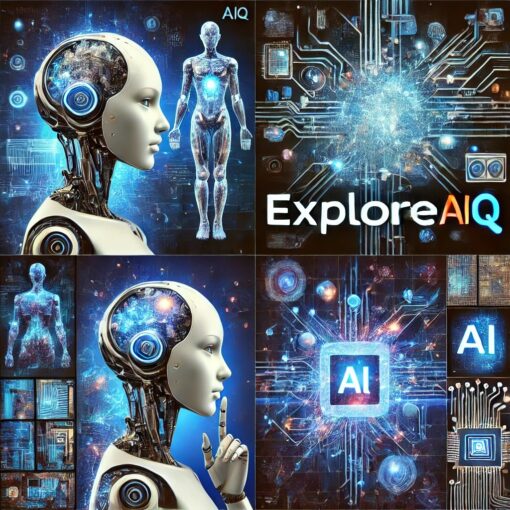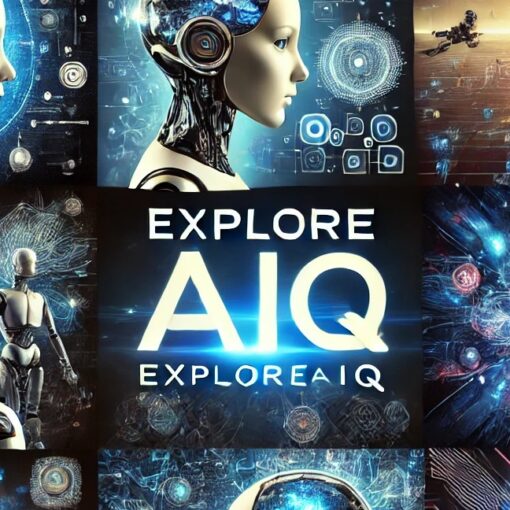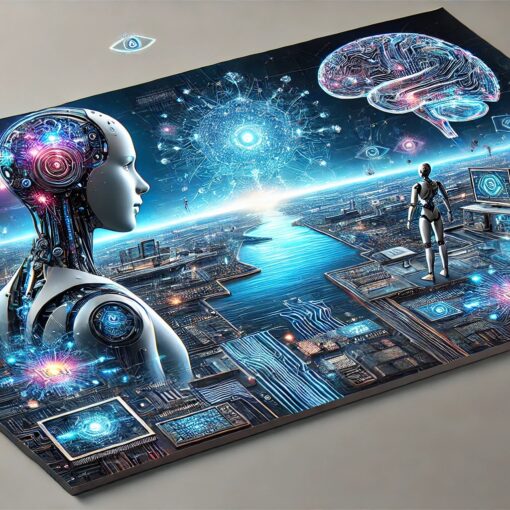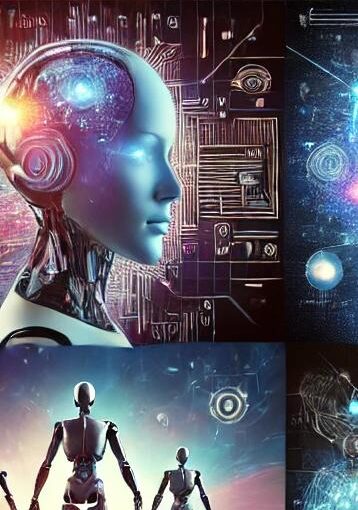Transforming Industries
Introduction: AI Beyond the Lab
Artificial Intelligence is no longer confined to research labs; it’s actively transforming industries across the globe. From healthcare to agriculture, AI is solving real-world problems, driving efficiency, and unlocking new possibilities. This blog takes you on a journey through the practical applications of AI in various industries, showcasing how it’s shaping the present and future of work and life.
In this next installment of the AI Terminologies Series, we’ll explore how AI is revolutionizing key industries and inspiring innovative solutions.
1. Healthcare: Saving Lives with AI
AI’s Role:
AI is improving patient care, optimizing diagnostics, and accelerating drug discovery.
Applications:
- Diagnostics: AI systems analyze medical images for early detection of diseases like cancer.
- Personalized Medicine: AI tailors treatments based on individual genetic profiles.
- Predictive Analytics: AI predicts disease outbreaks and monitors patient health in real-time.
Example:
Google Health developed an AI model that detects breast cancer in mammograms with greater accuracy than radiologists.
2. Finance: Smarter Money Management
AI’s Role:
From fraud detection to algorithmic trading, AI is making financial systems more secure and efficient.
Applications:
- Fraud Detection: Machine learning models identify suspicious transactions and prevent financial crimes.
- Algorithmic Trading: AI analyzes market trends to execute trades at optimal times.
- Customer Service: Chatbots assist customers with account inquiries and transactions.
Example:
PayPal uses AI to detect fraud in real time, saving billions of dollars annually.
3. Retail: Personalizing the Shopping Experience
AI’s Role:
AI enhances customer experiences by analyzing preferences and optimizing supply chains.
Applications:
- Recommendation Engines: Suggest products based on browsing and purchase history.
- Inventory Management: AI predicts demand to optimize stock levels.
- Customer Insights: NLP tools analyze customer feedback for actionable insights.
Example:
Amazon’s recommendation system drives over 35% of its sales by offering personalized suggestions.
4. Agriculture: Feeding the World with AI
AI’s Role:
AI helps farmers increase crop yields, reduce waste, and manage resources more effectively.
Applications:
- Precision Farming: AI-powered drones monitor crops and apply fertilizers precisely where needed.
- Pest Control: AI detects pests early to prevent crop damage.
- Climate Prediction: AI models forecast weather patterns to aid in agricultural planning.
Example:
John Deere’s AI-enabled tractors use computer vision to identify and remove weeds autonomously.
5. Transportation: Revolutionizing Mobility
AI’s Role:
AI is making transportation safer, faster, and more efficient.
Applications:
- Autonomous Vehicles: AI enables self-driving cars to navigate roads and avoid collisions.
- Traffic Management: AI optimizes traffic flow and reduces congestion in smart cities.
- Logistics Optimization: AI plans delivery routes for faster and cost-effective shipping.
Example:
Tesla’s Autopilot uses deep learning and computer vision to navigate highways autonomously.
6. Education: Transforming Learning with AI
AI’s Role:
AI personalizes education, making it accessible and engaging for diverse learners.
Applications:
- Adaptive Learning: AI customizes lessons based on individual progress.
- Tutoring Systems: Virtual tutors provide instant feedback and assistance.
- Content Creation: AI generates quizzes and summaries to enhance learning materials.
Example:
Duolingo uses AI to personalize language lessons, helping users learn at their own pace.
7. Energy: Driving Sustainability
AI’s Role:
AI is optimizing energy use and promoting renewable sources for a sustainable future.
Applications:
- Smart Grids: AI balances energy supply and demand dynamically.
- Predictive Maintenance: AI monitors equipment to prevent breakdowns in power plants.
- Renewable Energy Optimization: AI predicts solar and wind energy outputs for efficient grid integration.
Example:
Google uses AI to reduce energy consumption in its data centers, cutting cooling costs by 40%.
8. Entertainment: Creating Immersive Experiences
AI’s Role:
AI enhances storytelling, content creation, and user experiences in entertainment.
Applications:
- Content Recommendations: Platforms like Netflix and Spotify use AI to personalize suggestions.
- AI-Generated Art: Tools like DALL-E create stunning visuals from text descriptions.
- Interactive Gaming: AI powers realistic NPCs (non-player characters) in video games.
Example:
Netflix’s AI algorithm personalizes thumbnails and recommendations to increase user engagement.
Challenges of AI in Industry
While AI offers transformative potential, it also presents challenges:
- Bias in Algorithms: Ensuring fairness in decision-making models.
- Data Privacy: Protecting sensitive user information from misuse.
- Skill Gaps: Training workers to effectively use and manage AI systems.
- Ethical Concerns: Balancing automation with the impact on employment.
How to Get Involved in Industry AI Applications
- Explore Use Cases:
- Study how AI is applied in your industry of interest.
- Build Skills:
- Learn relevant tools and frameworks like TensorFlow, PyTorch, or industry-specific platforms.
- Work on Real Projects:
- Participate in internships, hackathons, or open-source projects.
- Collaborate with Experts:
- Join industry-focused AI communities and attend conferences.
Conclusion: The Transformative Power of AI
AI is not just a technology; it’s a catalyst for innovation across industries. By understanding its applications and addressing its challenges, we can unlock its full potential to create a smarter, more sustainable world.
Stay tuned to Explore AIQ for more insights into how AI is reshaping the world, inspiring creativity, and solving the challenges of tomorrow.




